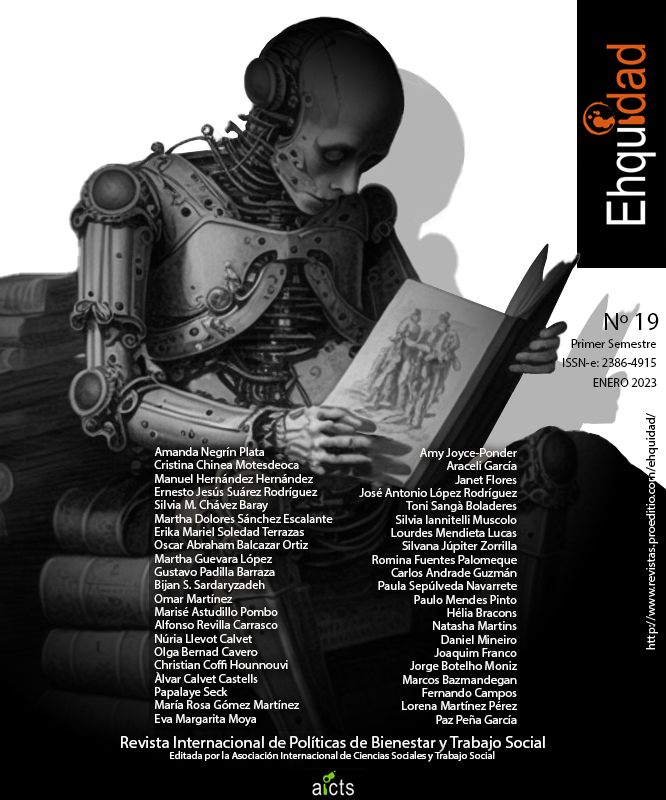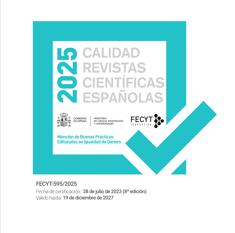Music, reading and embroidery: the social force of the sewing machine of the Singer Company and the School of Catholic Workers (1875-1930)
DOI:
https://doi.org/10.15257/ehquidad.2023.0004Keywords:
Non-regulated Education, Musica Academies, Popular Library, Night School, Singer CompanyAbstract
The opinions expressed in the press regarding education in this period have two directions: on the one hand, they criticize the scarcity and poor material conditions of schools, and on the other hand, they try to create an awareness that serves to transmit their own ideology. but what about non-formal education? Parallel to this educational universe, non-regulated education is developed, outside legal limits and promoted by the most humanistic social agents within the context of charity. This article aims to show some practices of this teaching, such as music academies, popular libraries, night and Sunday schools for Catholic workers in the city of Elche and the Singer Company, under the gaze of historical sociology.
Downloads
References
Anales del Instituto Nacional de Previsión, 1909-1936. (1915). Necrología de Protectores sociales, año VII, nº 23, 2ª edic., Madrid, p. 61, en www.ingesa.mssi.gob.es
Arenal, Concepción (1994). La instrucción del pueblo. Obras completas, Madrid, Atlas, t. XI, p. 154. Ruiz Berrio, Julio y demás autores. La Educación en España. Textos y documentos. Madrid, Ed. Actas, p. 163.
Fundación Francisco Giner de los Ríos (Institución Libre de Enseñanza) en www.fundacionginer.org
Gómez Martínez, Mª Rosa (2018). Crónica de la pobreza. Orígenes de la Asistencia Social en una ciudad del mediterráneo. Elche, 1923-1930. Elche, Cátedra Pedro Ibarra – Universidad Miguel Hernández.
Gómez Martínez, Mª Rosa (2020). Salud, pobreza y sociedad. Agentes sociales, recursos e instituciones en el primer tercio del siglo XX en Elche. Cátedra Pedro Ibarra – Universidad Miguel Hernández.
López Núñez, Álvaro (1929). Las obras de previsión en relación con la Beneficencia, año XXI, nº 82, Madrid, p. 473.
López Vázquez, José (2016). Historia de la máquina de coser. Fondos del MUVI. El Hinojal. Revista de estudios del MUVI, 6,102-109.
Moreno Sáez, Francisco (1987). El movimiento obrero en Elche (1890-1931). Alicante, Juan Gil Albert, Diputación Provincial de Alicante y Excmo. Ayuntamiento de Elche.
Perdiguero-Gil, Enrique y del Cura González, Mercedes (2022). Historia de la educación, historia de la salud y la enfermedad. ¿Caminos paralelos? Por una historia inter/multidisciplinar. Historia y memoria de la educación, 15, 11-28.
Pirat, Aurélie (2004). Concepción Arenal y el krausismo. Moenia: Revista lucense de lingüística & literatura, 10, 357-360.
Ramos Folqués, Alejandro (1973). La industria, el comercio y la agricultura en Elche. Edita el autor.
Ruiz Berrio, Julio y demás autores (1996). La Educación en España. Textos y documentos. Madrid, Ed. Actas.
Sáez, Dorita. Memorias, s/p.
Santolaria, Félix (2009). En el centenari de la creació de les Juntes de Protecció de la Infáncia (1908-2008). Educació i História: Revista d´História de l´Eduació, 14, 9-12.
Tuñón de Lara, Manuel (1981). Historia de España. IX. La crisis del Estado: dictadura, república, guerra (1923-1939). Barcelona, Ed. Labor S.A.
Vives, Juan Luis (1948). De las disciplinas, segunda parte en Obras completas, II, Madrid, Aguilar, pp. 550-555 y 562-568. Ruiz Berrio, Julio y demás autores (1996). La Educación en España. Textos y documentos. Madrid, Ed. Actas, 57-58.












